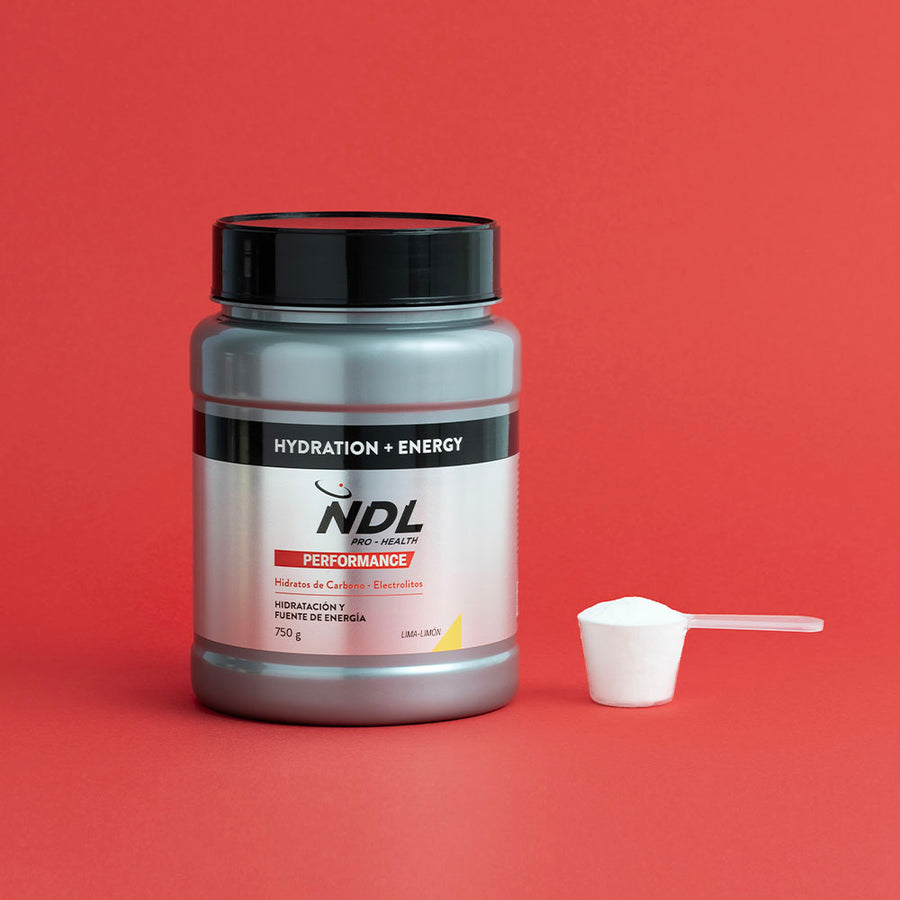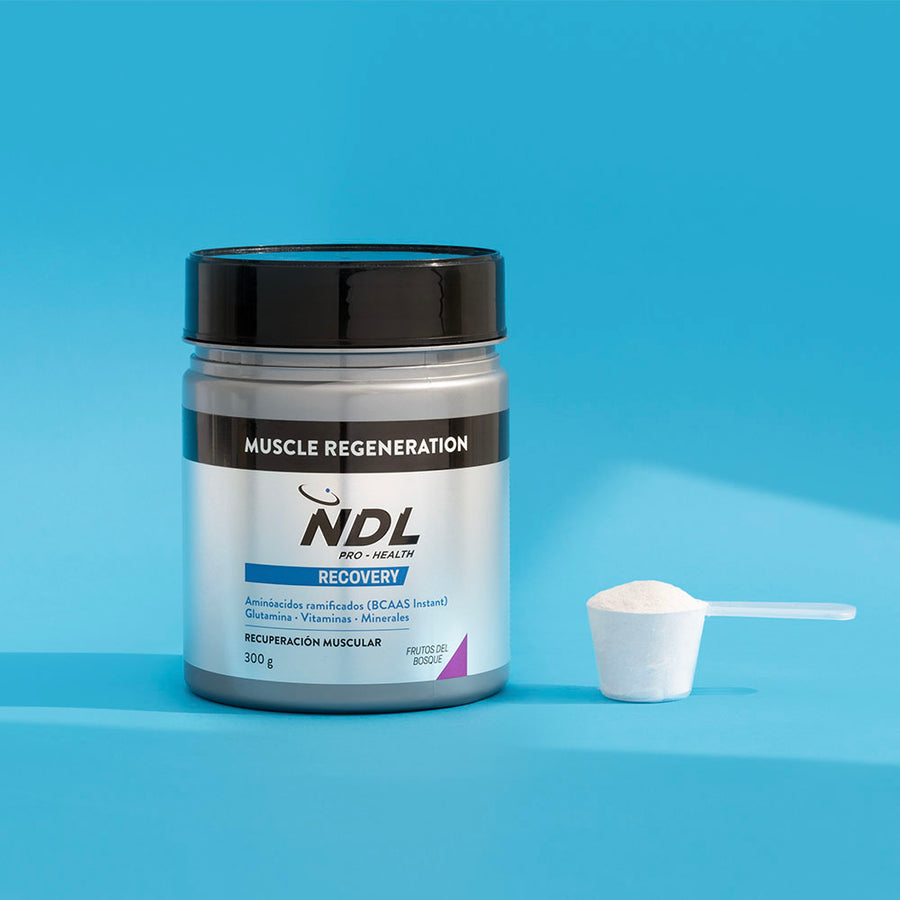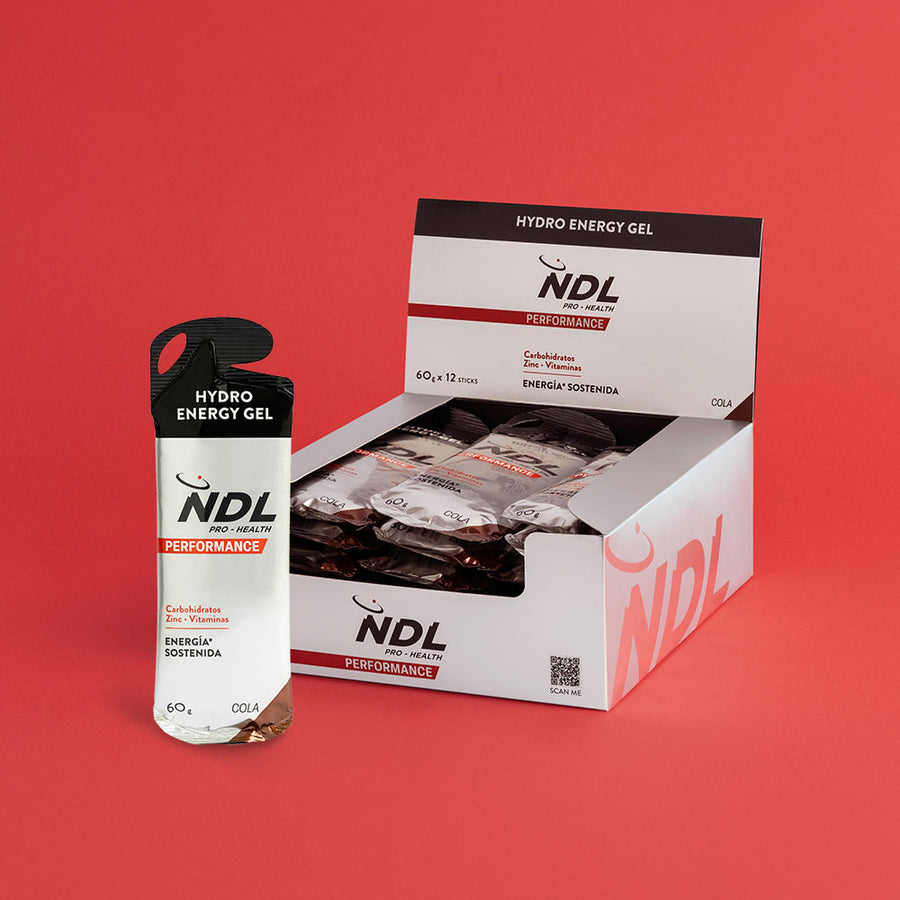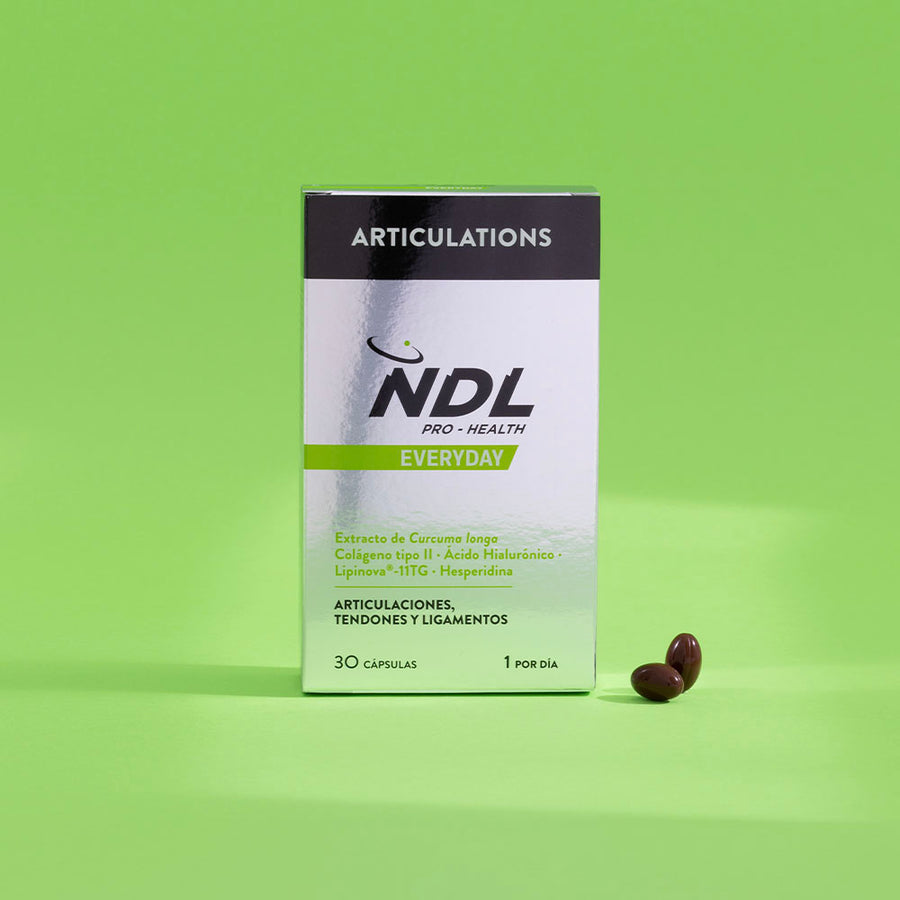Featured Products

Hydration + Energy
See product
Muscle Regeneration
See product
Hydro Energy Gel Pack 12
See product
Articulations
See productNew year and new resolutions, especially sporting ones. We want to get hooked on sports again or we want to take a step further and start demanding something more from ourselves.
Many times, people are of extremes: either we do nothing or we want to do it like the elite athletes. But to what extent is it harmful to try to replicate the daily routines of elite athletes if we are not?
On many occasions, when we set out to improve our appearance, physical shape or performance, we are inspired by our "idols"; by a professional athlete with whom we can identify, either by practicing the same sport or by the way they are.
We motivate ourselves thinking that we can try to be a little more like that person of "reference" and we say to ourselves: "I want to be like Rafa Nadal", for example. A tennis player who has overcome a year of injury and has returned to compete at a good level, showing us all the great athlete he has inside.
Sometimes, we try to get so close to that model of athletes that we even imitate their way of training, but there is always a but. We do not realize that we, in most cases, are not professionals, but simply people who love the "sport" and seek its benefits to feel better. And we are not aware that training like a professional does not bring health benefits, but quite the opposite.
Types of training to progress and improve our performance
Depending on the sport discipline, some athletes need to dedicate more time to their preparation, because they must make their organism achieve adaptations to exercise progressively. That is to say, a marathon runner running at 4 minutes per km, without varying his routines, will not achieve absolutely no improvement in his results because he will not achieve positive adaptations to training, which will cause him to continue or even get worse.
To achieve positive adaptations, this marathon runner needs to modify his or her training according to the progress achieved, both in time and in varying intensities.
However, for the rest of us mortals (and here comes the good news), improvements happen with much less effort. You'll be glad to know that we don't have to push ourselves as if we were professionals, and that's a good thing.
It is very good that, from time to time, we train with greater intensity, reaching our limits. This is something that the body appreciates and we improve a lot by doing it, but it must be controlled and always following the principle of proper intensity progression.
The ideal is to train wisely, being realistic with our state of fitness and not exceeding the hours of training that we can assume, which could lead to the so-called "overtraining syndrome" or, more simply, to injury due to fatigue or repetition stress.
An example of all this is that lately, we are observing that long distance events have lost their respect. Before, doing a sprint triathlon or a 10 km race was a success for most people. Today, however, we find groups of people talking about and dismissing these types of events as if they were easy.
For example, the Ironman brand and marathons have seen a notable increase in registrations and requests over the last few years. You have to be careful with this and, above all, watch your training routines as well as your rest and nutrition.
The most advisable is to do strength work 2-3 times a week and then enjoy other sports with control, with the peace of mind and guarantee of knowing that our body is prepared to withstand these loads.

You don't have to do the same hours of training as Gómez Noya in a typical week of training: 20,000 to 23,000 meters in the pool, 300 kilometers on the bike and 110 to 120 kilometers of running. What you do need to do, and it is very useful for everyone, is to imitate certain things that the professionals always take care of.
What should we imitate from professionals whenever we can?
Without a doubt, invisible training. If you have a scheduled training routine and you like to keep in shape and take care of your performance improvement, you can't forget about invisible rest. It's a topic that we generally don't give too much importance to and yet it does.
Invisible training refers to all the actions that an athlete carries out at the end of his or her physical preparation, from hydration and nutrition to active rest and recovery.
This unseen part of training may be the aspect you are missing to improve your fitness and health. You can take the utmost care in the selection of your routines, the percentage of load, the intensity, the pace of execution and a long etcetera, but if you neglect your diet, your rest and sleep hours, you will be undermining your own progress and it will cost you a lot to see the results, you may even see an involution of the same.
Among the aspects that refer to invisible training, there is one that is worth paying special attention to, which is none other than nutrition and sports supplementation.
What is sports nutrition?
Dietetics and sports nutrition is one of the factors that most influences the performance of an athlete, helping to significantly improve not only performance, but also recovery, playing a fundamental role in repairing muscle damage caused by exercise.
When we talk about sports nutrition, we refer to the branch of nutrition that focuses specifically on athletes, through which a series of guidelines are given to educate and guide them on what, when and why certain foods should be consumed, as well as the importance of the different types of sports supplements.
To improve performance and recovery, we must choose well the food we are going to take before and after training. If your thing is aerobic sports, you have to control well the amount and type of food, along with the time that elapses between the last intake and the start time of the activity.
The ideal is not to take food 45-60 minutes before starting to train, although this depends on the food in question. Fruits are assimilated in a short time and you could take some in that time without suffering stomach discomfort or discomfort.
When you are competing, especially in long duration sports, you often also need energy and hydration through sports supplementation.
What sports supplementation to take?
Aware of the many doubts that may exist when choosing a supplement, here are some of the best sports supplements that are very interesting:
For example, Hydro Energy Gel, which provides an immediate energy supply thanks to its formulation with carbohydrates, also incorporating other nutrients such as vitamins and zinc. In addition, it also provides vitamins B12, B6, B5, B3 and B2 to help the normal functioning of energy metabolism and the reduction of tiredness and fatigue.
For sports such as cycling or team sports there is also a great option, Hydration + Energy sachets, which gives you the best of hydration and also an extra supply of energy, mixed with water that you can consume while cycling, running or doing any sport.
If you are one of those who train with components that require strength, explosiveness and quick and short efforts, but repeated over time, it would be ideal to take a supplement such as Muscle Regeneration, formulated from branched amino acids, glutamine, vitamins and minerals that stimulate muscle regeneration and contribute to replenish glycogen that restores energy.
Sports supplements: How to take them?
How to take sports supplements is of great importance, being essential to take them at the right time, because after training you must take advantage of the metabolic window.
When physical activity ends, the body can enter a situation of catabolism, in which molecules are destroyed due to the effects of training (something negative), but we are also in an optimal time to assimilate certain nutrients and prevent this catabolic effect from occurring.
This time comprises the 45 minutes after training and, here we must take appropriate food. Sometimes that is a problem because either you have no appetite, or it is simply complicated for you to take that kind of food. For this reason, many people take advantage of this type of sports supplements at the end of the activity.
Why take sports supplementation?
We know that the optimal way to obtain the necessary nutrients for the body is based on consuming natural foods and a balanced diet but, sometimes, the needs generated by the body of an athlete exceed the contributions that we make naturally and that is why we resort to sports supplementation.
There are many products on the market, but not all have the same composition or guarantees in their manufacturing processes, so we recommend NDL products, considered one of the best brands of sports supplementation, which have been subjected to stringent quality controls and are scientifically proven.

He is currently sports director at the University Alfonso X el Sabio, where he combines his functions with the operations management of UAX Rafa Nadal School of Sport. He is a regular contributor to magazines such as Sportlife, Triathlon, Corredor..., where he demonstrates his knowledge about the world of fitness, physical activity and health. He has a degree in Sports Science along with a master's degree in Physical Activity and Health, specializing in the treatment of injuries, physical activity for health and nutrition for athletes.

















